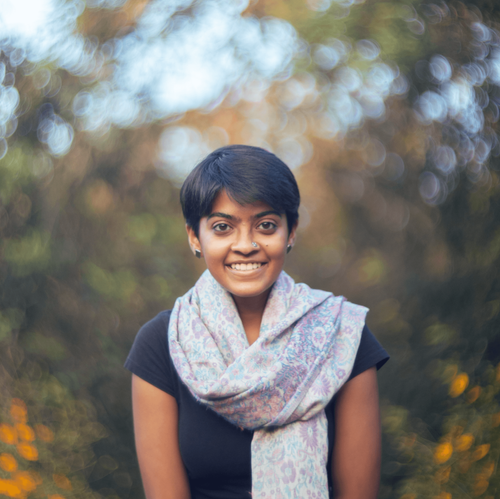Kohinoor Darda

I’m the Founder & CEO of ARISA Foundation, a not-for-profit in Pune, India, that bridges neuroscience, psychology, & art for research, cultural heritage, societal well-being, and social change. I hold a PhD in Cognitive Neuroscience & am a Bharatanatyam & Kuchipudi dancer. I explore how art and social interactions shape our brains and minds—on land, in labs, and sometimes, underwater!
Hi, I’m Kohinoor Darda, Founder and CEO of the ARISA Foundation (Advancement and Research in the Sciences and Arts), a not-for-profit based in Pune, India. I hold a PhD in Cognitive Neuroscience from Bangor University in the UK, and I’ve worked as a postdoctoral researcher at the University of Glasgow, Macquarie University in Sydney, and the University of Pennsylvania. My academic work explores the neural and cognitive underpinnings of how we relate to others and how we experience and engage with art—questions I’m deeply passionate about both scientifically and personally.
Alongside my scientific training, I’m also a Bharatanatyam and Kuchipudi dancer. I’ve always believed in the power of movement, rhythm, and embodiment to communicate and transform. Much of my current work sits at the intersection of neuroscience and the arts, where I use interdisciplinary approaches to study topics like social connection, aesthetic experience, and wellbeing.
Through ARISA, I aim to create a space where science and art can not only inform each other but also become more inclusive and representative of diverse cultures and communities. Our projects span from empirical research and community-based art initiatives to school programs and museum collaborations—each designed to make both the arts and sciences more open, equitable, and accessible.
I’m excited to be part of the Neuroarts community because I believe in the richness of working across boundaries—disciplinary, cultural, and methodological. I’m particularly interested in contributing perspectives from the Global South, rethinking how we study beauty, creativity, and mental health in context. I also hope to learn from others who are blending neuroscience, psychology, and the arts in novel and meaningful ways.
When not in the lab or studio, you’ll find me deep in novels or diving into the ocean—literally. Looking forward to connecting and collaborating!
Interests
My work sits at the intersection of neuroscience, psychology, and the arts, with a strong emphasis on accessibility, cultural relevance, and social impact. I’m particularly interested in neuroaesthetics, imitation, emotional regulation, and how the brain processes aesthetic experiences across different cultures and life stages. Through ARISA, I lead projects that range from evaluating the impact of dance and art therapy on wellbeing, to developing culturally grounded aptitude and personality assessments for Indian students. I also work on cross-cultural studies of aesthetic preferences, AI and creativity, and embodied cognition in artistic experiences such as dance and music. Some of our initiatives include the Creative Lab Festival, which explores multisensory experiences through immersive art installations and events, and neuroaesthetics-based museum tours that bring together art appreciation and scientific insights. I’m passionate about preserving cultural heritage through research, building interdisciplinary capacity in India, and creating platforms where diverse, underrepresented voices can shape the global discourse on arts and sciences.